Inspiration in the Age
of Enlightenment
Inspiration in the Age
of Enlightenment
Sarah Eron
UNIVERSITY OF DELAWARE PRESS
Newark
Published by University of Delaware Press
Copublished with Rowman & Littlefield
4501 Forbes Boulevard, Suite 200, Lanham, Maryland 20706
www.rowman.com
10 Thornbury Road, Plymouth PL6 7PP, United Kingdom
Copyright 2014 by Sarah Eron
All rights reserved. No part of this book may be reproduced in any form or by any electronic or mechanical means, including information storage and retrieval systems, without written permission from the publisher, except by a reviewer who may quote passages in a review.
British Library Cataloguing in Publication Information Available
Library of Congress Cataloging-in-Publication Data
Eron, Sarah.
Inspiration in the Age of Enlightenment / Sarah Eron.
pages cm.
Includes bibliographical references.
ISBN 978-1-61149-499-0 (cloth : alk. paper) ISBN 978-1-61149-500-3 (ebook)
1. English literature18th centuryHistory and criticism. 2. Enthusiasm in literature. 3. Inspiration in literature. 4. Aesthetics, British18th century. 5. Augustus, Emperor of Rome, 63 B.C.-14 A.D.Influence. I. Title.
PR448.E57E76 2014
820.9'005dc23
2013049704
 TM The paper used in this publication meets the minimum requirements of American National Standard for Information Sciences Permanence of Paper for Printed Library Materials, ANSI/NISO Z39.48-1992.
TM The paper used in this publication meets the minimum requirements of American National Standard for Information Sciences Permanence of Paper for Printed Library Materials, ANSI/NISO Z39.48-1992.
Printed in the United States of America
For Laura Brown
Acknowledgments
Just as this book is about the discourse of Enlightenment, it is also a product of Enlightenments discursive practice and process. The idea for this book emerged out of the seventeenth annual conference for the North American Society for the Study of Romanticism on Romanticism and Modernity at Duke University. At that time, I was thinking about enthusiasm in the work of Shaftesbury and Pope and struggling to find my place in the academic world as both an eighteenth-century scholar and a Romanticist. The discussions and thinking that arose out of those few days in North Carolina gave rise to my doctoral work at Cornell and ultimately to this book.
I owe much to those who helped me through the incipient stages of this project while I was living in Ithaca, NY. This book is deeply indebted to Neil Saccamano and Fredric Bogel, two of my dissertation advisors who remain to this day my greatest critics in the Popean spirit of that term. As two of the most insightful and incisive readers and theorists of eighteenth-century literature, they have made this work what it isby both calling it into being and governing its early progress. Always leading by example that Muse, whose early Voice [they] taught to Sing / Prescribd her Heights, and prund her tender Wing, they demonstrated awesome patience and persistence in the formative stages of my thinking about inspiration and Enlightenment. Thank you also to Reeve Parker, M.H. Abrams, Anne-Lise Franois, and Neil Hertz who brought me into the world of Romanticism and encouraged me to re-envision its many implications within eighteenth-century studies and the greater realm of literary history.
I also want to thank my colleagues in the Providence area, Melinda Rabb, Marc Redfield, and Jacques Khalip, for their constant support through the later stages of this project and for providing me with a wonderful intellectual community of eighteenth-century scholars. Melinda deserves special mention not only for her assistance in my many revisions to the introductory chapter of this book but also for her long-time support as a mentor, colleague, and friend. Thank you for calling me to the vocation of eighteenth-century studies.
This books transformation over the last couple of years is owing to Stephen Barber who diligently assisted me in revising this manuscript until it reached its final form. I am grateful to David Fairer for his generous, eloquent, and insightful feedback on chapter 3 of this book. Thank you also to Ruth Tilley who helped with the copyediting process. I owe more than I can account for to my dear friend, David Alvarez, who has looked over many portions of this project in its various stages, watching it evolve over the course of the last five years. David, thank you for your constant friendship, support, intellectual conversation, and encouragement. I never would have made it through the process of writing this book without you, and my vision of Enlightenment has spiraled, as you know, out of many conversations with you.
Over the course of writing this book, I have had the privilege of participating in a number of reading groups that have nourished my thinking about Enlightenment and Romanticism, and I want to thank those who sustained me in that intellectual process over the years. The Eighteenth-Century and Romanticism Reading Groups at Cornell got me through many a winter and also assisted me in the early stages of this project. I was equally fortunate in my move to the Providence/Boston area, and I want to extend my gratitude to Jacob Risinger, James Engell, and Andrew Warren for welcoming me into the Long Eighteenth-Century and Romanticism Colloquium at Harvard. It has been an absolute pleasure continuing to read through the puzzles of Romanticism and modernity with you, and the escapes to Cambridge over the past two years have been both enlightening and revitalizing as I was working on the later revisions to this book.
A portion of chapter four of this project appeared as Genius, Muse: Inspiration and Invocation in Fieldings Tom Jones, The Eighteenth-Century Novel. 9 (2012): 25-49 (Copyright 2012, AMS Press, Inc. All rights reserved). I am grateful to AMS Press for the permission to use that material here. Thanks also to ECNs editors, Al Rivero and George Justice, for their excellent feedback on that work. I want to thank the Center for the Humanities at the University of Rhode Island for their financial support with the index of this book. I am also very grateful to my readers and editors at the University of Delaware Press for their encouragement of this project and for their advice, suggestions, and assistance in this books emergence.
Finally, this book is dedicated to Laura Brown for her incredible support for this project. Having read through this manuscript countless times and having seen this book in its many forms, she deserves particular mention. Laura, from the very first, you have given new meaning to the work of mentorship. Your intellect, dedication, and originality, your generous support and true genius, have buoyed me up over the many stages and progressions of this work. Thank you for guiding me through all the Mazes, the winding Labyrinths of academic life.
Preface
This book investigates a literary-historical moment in time that many have called the rise of modernity. But what is modernity? If we consider modernity not merely as a historical event, but rather as a practice, an ethos, we might say that this practice is still happening at this very moment. Modernity is a spirit of the public sphere that still survives today in often unacknowledged ways. As a literary investment, modernity speaks to the ideals of authorship and, more specifically, this book argues, of authority. We might say that modernity begins when the arts no longer rely on monarchy, on individual or aristocratic patronage. It begins, one might argue, with Alexander Popes decision to translate Homers Iliad. This revival of an ancient text laid claim to its modernity when Pope wrote to a list of subscribers asking them to invest in his translation to be. This was a moment of self-authorization, one that relied on a community and began with a plea to have faith, not in God or the divinely ordained authority of the state, but in the author himself. Modernity is such self-authority, an act of laying claim to ones own voice. Yet this authority, secular as it may be in its separation from God and state, is still not entirely autonomous. Rather, modernity speaks to a semi-autonomous authority, one circumscribed, attenuated, and mediated by the laws of an eighteenth-century public sphere. In this sense, modernity is the authorization of the individual

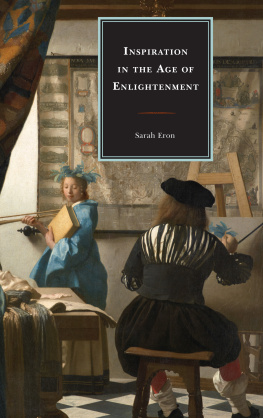

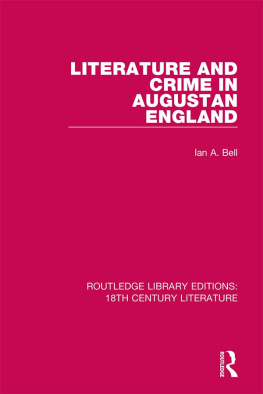
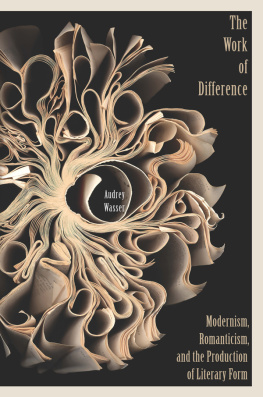
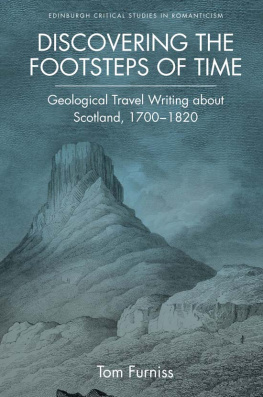
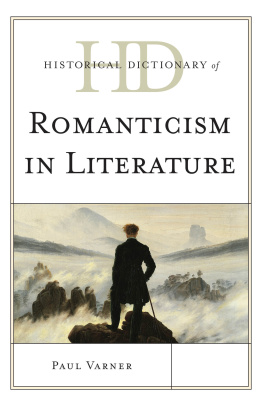

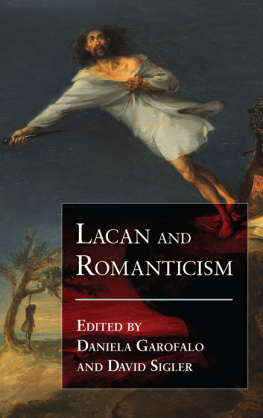
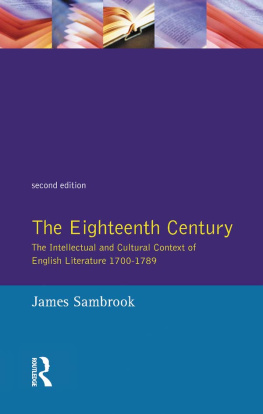
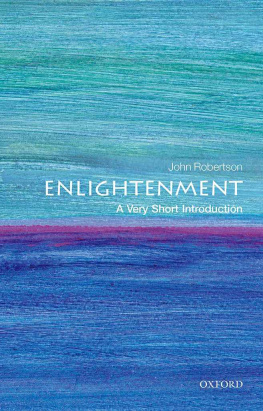
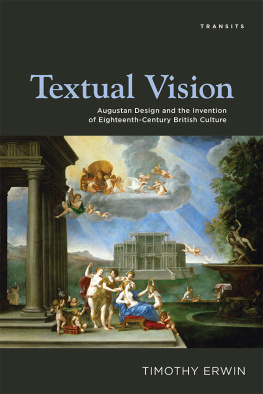
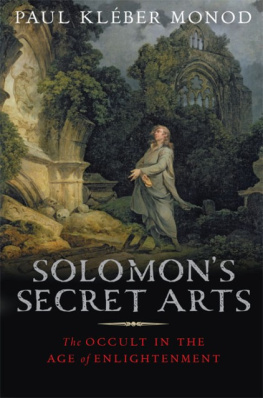
 TM The paper used in this publication meets the minimum requirements of American National Standard for Information Sciences Permanence of Paper for Printed Library Materials, ANSI/NISO Z39.48-1992.
TM The paper used in this publication meets the minimum requirements of American National Standard for Information Sciences Permanence of Paper for Printed Library Materials, ANSI/NISO Z39.48-1992.